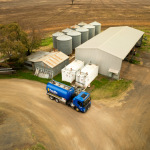Fuel distribution is the lifeblood of Australia’s economy, supporting industries, transportation, and communities nationwide. Bulk fuel distribution, in particular, plays a pivotal role in ensuring a consistent supply of fuel across the country. In this article, we delve into the significance of bulk fuel distribution in Australia, examining its impact on various sectors and the challenges it confronts.
The Significance of Bulk Fuel Distribution
Bulk fuel distribution serves as the backbone of Australia’s energy infrastructure, fuelling essential sectors such as mining, agriculture, transportation, and construction. Whether it’s diesel for heavy machinery or petrol for vehicles, timely and reliable delivery of bulk fuel is essential for sustaining operations and driving economic growth. Without efficient bulk fuel distribution, many aspects of Australian industry and daily life would come to a standstill.
Meeting Diverse Demands
The vast expanse of Australia presents unique logistical challenges for bulk fuel distribution. From remote mining sites to rural communities, ensuring fuel reaches every corner of the country requires a well-coordinated logistics network. Bulk fuel distributors play a crucial role in meeting the diverse needs of their customers, leveraging advanced technology and strategic partnerships to deliver fuel efficiently and on time, regardless of location.
Addressing Environmental Concerns
In addition to logistical challenges, bulk fuel distribution must also prioritise environmental sustainability. The transportation and storage of fuel can have significant environmental impacts if not managed responsibly. To mitigate these risks, bulk fuel distributors adhere to strict environmental regulations and implement best practices to minimise emissions and environmental hazards. By prioritising sustainability, the industry aims to minimise its carbon footprint and protect natural ecosystems.
Innovations Driving Efficiency
To overcome logistical and environmental challenges, the bulk fuel distribution industry is embracing innovation and technology. Automated fuel delivery systems streamline the ordering process, while GPS tracking and route optimisation software enhance delivery efficiency and reduce fuel consumption. Furthermore, investments in alternative fuels and renewable energy sources are reshaping the future of bulk fuel distribution, promoting a more sustainable energy landscape for Australia.
The Evolving Landscape
As Australia moves towards renewable energy and alternative fuels, the bulk fuel distribution industry must adapt to meet changing market demands. Investing in infrastructure, technology, and workforce development will be crucial for maintaining the reliability and efficiency of bulk fuel distribution operations. By staying agile and responsive to evolving trends, bulk fuel distributors can continue to play a vital role in powering Australia’s economy and supporting its energy transition.
Conclusion
Bulk fuel distribution is a linchpin of Australia’s energy infrastructure, powering industries, transportation, and communities across the country. Despite facing logistical and environmental challenges, the industry remains resilient and adaptable, driven by innovation and a commitment to sustainability. By prioritising efficiency, embracing technology, and investing in a greener future, bulk fuel distributors can continue to meet the evolving needs of their customers and contribute to Australia’s economic prosperity. As Australia navigates its energy transition, bulk fuel distribution will remain a critical component of the nation’s energy landscape, ensuring reliable access to fuel for generations to come.





